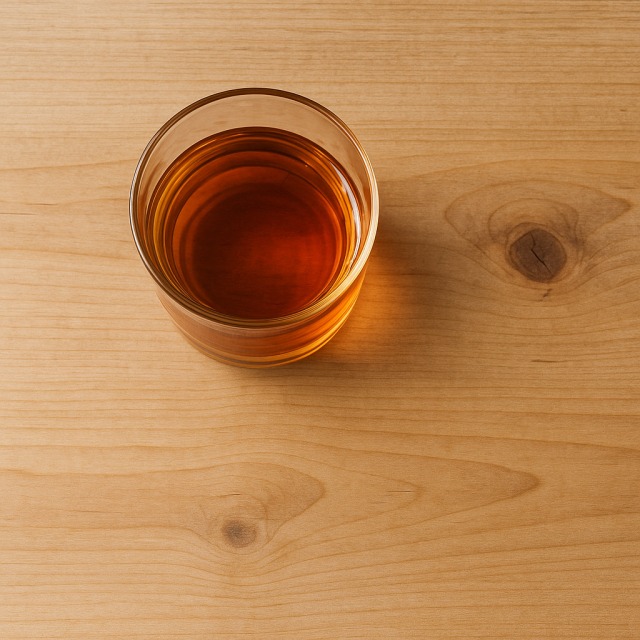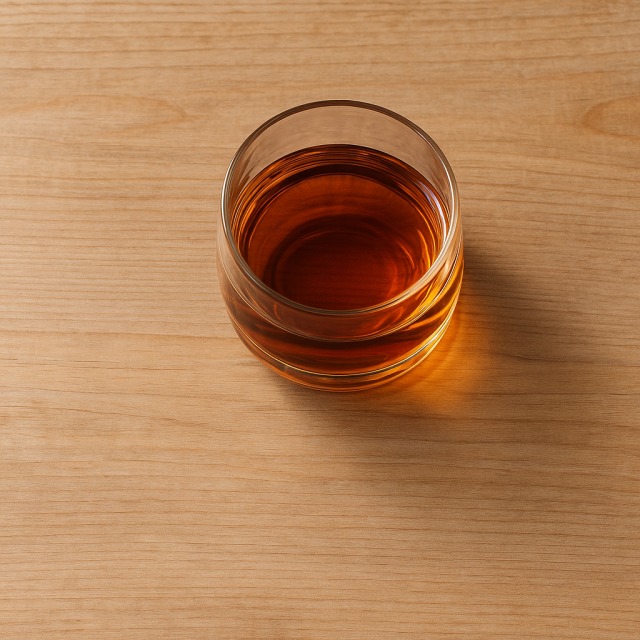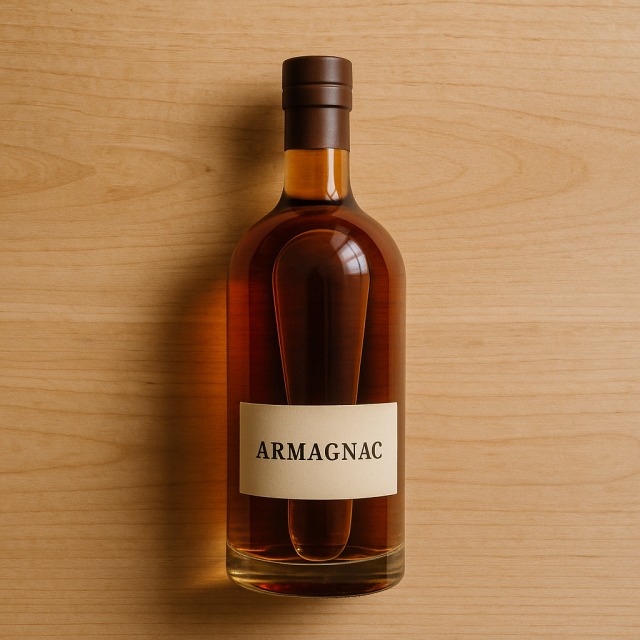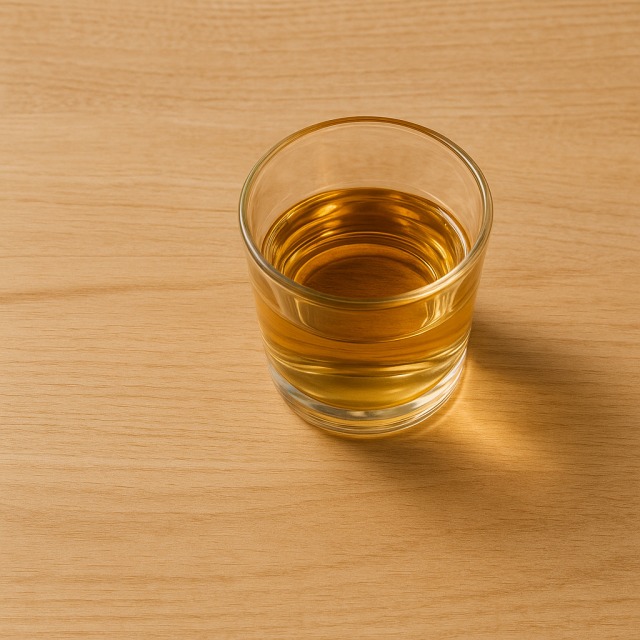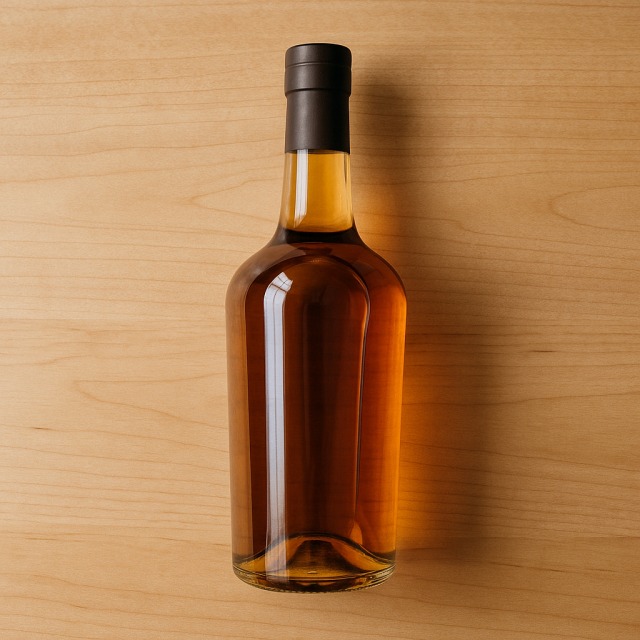Calorie Chart / Beverages / Rum
How Many Calories Are in Rum?
Calculation of the nutritional value & Recommended Dietary Intake of rum
For ml and a calorie requirement of kcal
| Calories 154 kcal | Proteins 0 g | Lipids 0 g | Carbohydrates 0 g |
| 8% | 0% | 0% | 0% |
Health benefits of rum
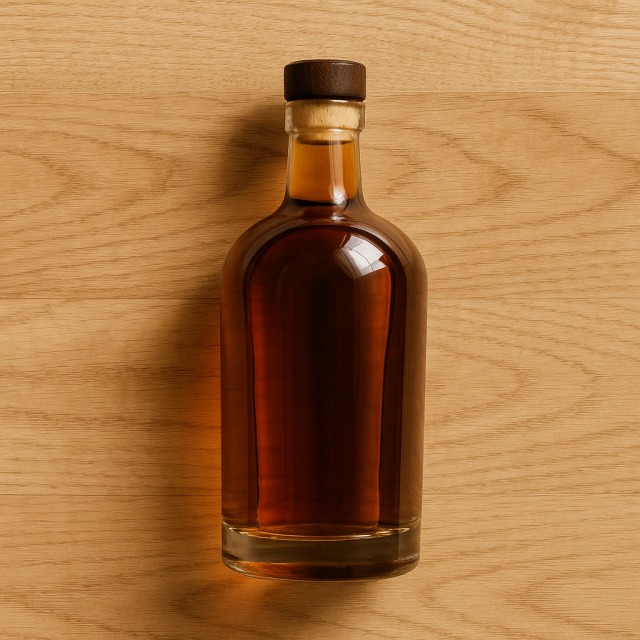
Rum - 100ml
Calories 385 kcal
Proteins 0 g
Lipids 0 g
Carbohydrates 0 g
With 385 kcal per 100 g, rum is clearly a high-calorie spirit. Even if it provides 0 g of proteins, lipids, and carbohydrates in its analyzed form (the sugars are fermented then distilled), those calories still count toward daily energy intake and must be included in any diet plan.
Rum is distilled from sugarcane juice or molasses and then often aged in oak barrels. During this aging, tiny amounts of polyphenols and esters migrate from the wood into the alcohol; these compounds are reputed to possess antioxidant properties that may help combat oxidative stress. Trace minerals such as potassium, iron, and magnesium can also be found, but in very small, nutritionally insignificant quantities given the limited serving sizes recommended for alcoholic drinks.
Historically, rum accompanied sailors on long sea voyages because it kept well and was used to prevent spoilage of drinking water. Today, moderate consumption is sometimes linked to convivial moments that can support psychological well-being, although excess intake quickly drives up calories and health risks. Always remember that "liquid calories" are easy to overlook.
Tips for incorporating rum into a balanced diet
Because rum calories add up fast, portion control is the first rule. A standard 30 ml (≈24 g) shot delivers roughly 92 kcal, so reserving it for special occasions or flavor boosts is wise.
In cooking, use a small splash of rum to flambé a sliced banana or caramelized pineapple; most of the alcohol evaporates, but part of the calories remain. Keep desserts light by serving the fruit with a spoon of fromage blanc 0% instead of ice cream.
For savory dishes, a rum-based marinade with lime, garlic, and spices pairs beautifully with shrimp and prawn or lean chicken breast. Grill or bake rather than deep-fry to avoid extra calories.
If you enjoy cocktails, replace sugary sodas with sparkling water and fresh orange segments to cut calories while keeping flavor. Always accompany alcoholic drinks with nutrient-dense snacks like a handful of almonds or raw carrot sticks to temper the glycemic load.
Frequently Asked Questions
- How many calories are in rum?
- Rum contains 385 kcal per 100 g.
- Is rum more fattening than beer or wine?
- Yes, gram for gram, rum delivers far more calories because it is a distilled spirit (≈385 kcal/100 g) compared with beer (~40-50 kcal/100 g) or red wine (~70 kcal/100 g). However, portion sizes differ: one 150 ml glass of wine can equal the calories of a 30 ml shot of rum.
- Does rum contain sugar or carbohydrates?
- No—distillation removes virtually all sugars, so laboratory analysis shows 0 g carbohydrates. The calories come exclusively from alcohol (7 kcal per gram).
- How can I make a lower-calorie cocktail with rum?
- Use diet-friendly mixers such as sparkling water, fresh citrus juice, crushed mint, and ice. Avoid syrups and opt for naturally sweet foods like muddled strawberries or melon to keep calories under control.
- Is cooking with rum healthier than drinking it?
- Flambéing or simmering burns off much of the alcohol, reducing total calories, but not eliminating them. A tablespoon added to a sauce will still contribute roughly 20-25 kcal after evaporation.
- Can rum fit into a weight-loss diet?
- Yes, but only in strict moderation. Reserve rum for occasional use, track its calories carefully, and balance the rest of the meal with low-calorie foods like broccoli, spinach, and grilled cod.
Similar foods
Alcohol consumption may be harmful to your health. Please drink responsibly. Do not drink and drive. Not recommended during pregnancy. Must be of legal drinking age.
Information provided by Calorie Menu may contain inaccuracies or errors. It cannot, under any circumstances, substitute medical advice or medication.
